We need to be extremely grateful to our Spiritual Master Bhagawan Baba who has so clearly presented to us the true spirit of the various prescribed spiritual practices. This gives us a right perspective and prevents us from missing out the wood for the trees. In this posting, we have Bhagawan Baba explaining to us the true spirit of all Upaasanaa (Worship), listening to Upanyaasam (Spiritual Discourses) and Paaraayanam (Chanting the name of God / study of spiritual texts / sharing the Glory of God).
There are six Discourse excerpts presented in this posting. These have been selected from the Discourses given by Bhagawan Baba in the years 1996 and 1997.
 |
| Time is God. Don’t waste time. Time waste is life waste |
Vyasa composed the 18 Puraanaas. But eventually, where are the people who read these Puraanaas? There is just no free time for all this. Many people think they must read these Puraanaas, but they say that they do not have the time to read these. In case they have to undertake some Vratam (spiritual vows), they say they have no time at all, they have lot of office work, they have a number of business errands or they have lot of studies to cope up with. In this way, they give reasons based on their position and status in life.
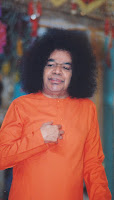.jpg) |
| I install Myself in the hearts of those who sing the glory of God |
At one time, Narada asked Lord Vishnu. Swami, all the time, in order to have your Darshan, I come to the place where you are there. But at times, there may be an emergency. At such times, if I need to see you or send word to you, where would you be? Where is your head office? Is it at Vaikuntam, or at Kailasa or in Heaven? Then Lord Vishnu said, “Narada, take down my address. Mad Bhaktaaha Yatra Gaayanti, Tatra Thishthami Narada. Narada, this Kailasa, this Vaikuntam, this heaven; these are all branch offices. My head office is – Mad Bhaktaaha Yatra Gaayanti – where my devotees sing my glory – Tatra Thishthami Narada – therein I install Myself Narada. At other places, I am just a procession idol. However, in the head office I install Myself. He said “install Myself” and not just “reside therein”. Therefore, every heart is the dwelling place of God. Hence, man should not imagine that he is just a man. All are verily forms of God Himself!
 |
| For true experience, both “nearness” and “dearness” are essential |
We study the Ramayana, the Bhagavata, the Bhagavd Gita and perform so many Paaraayanaas(chanting the name of God / studying scriptural texts / sharing the glory of God). But what is the use? Everyday we do Paaraayanaaof the Bhagavatha and the Bhagavd Gita. Everyday we chant the Sahasranaamaa (1008 names of the Lord). All this is merely textual knowledge. But we need practical knowledge. It is enough if we practice at least one teaching (of these scriptures). If we enquire in this manner, it is a matter of shame and embarrassment to call ourselves devotees. We are there very close possibly. But we are like frogs on the flower. On the other hand, honey bees come from far off places and suck the nectar from the flower and go away.
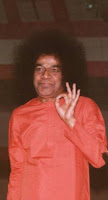.jpg) |
| Spirituality has become a sort of fashion these days! |
How is the practice these days? If there is some spiritual discourse, some Harikatha (story of God), or some other narration of the glory of God, all the people go there to listen. So long as these discourses, talks and Harikathas go on, vibrations of renunciation keeps manifesting in the people, over and over! How long do these vibrations, emotions and renunciation last? The moment the discourse gets over, these too vanish. What is heard, is not treasured even till they reach their homes. So what is the use of listening to any number of discourses that preach “Anityam Asukham Lokam” (this world is ephemeral and full of sorrow). It is all only listening, but no practice. Only when we practice, we will realize the benefit. Only when you eat, you come to know the taste and the hunger is satiated. We can also assimilate its strength. We do not know the taste. Why? Because we are not eating. We are unable to get rid of the weakness. Why? Because we are not digesting what is eaten. What is heard has to be eaten (absorbed) and what is eaten has to be digested (assimilated).
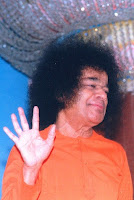.jpg) |
| By the time you leave the Hall, the spiritual discourse is forgotten! |
There was a devotee. He had been attending spiritual discourses since 16 years. What were these discourses about? They were the stories of Lord Rama. Everyday, there would be a discourse on the life of Lord Rama. The quality of detachment is found extensively in the story of Lord Rama. His whole life was full of difficulties. To add to it, the Pundit was narrating the story with all the more feelings and emotions. The Pundit laid down the discipline that whosoever attends these spiritual discourses should do so without absenting themselves even for a day. Because, if people miss the discourse, the crowd will appear less! The Pundit wanted the pride of having large crowds attending his discourse. Therefore the Pundit had laid down the rule that unless one attends these discourses everyday without missing even one day, they would not receive the benefits / results of this Paaraayanam.
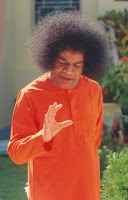.jpg) |
| One teaspoon of cow’s milk is enough, why barrels and barrels of donkey’s milk? |
Therefore practice is most important. All these texts like the Ramayana, Mahabharatha, Bhagawatha, Koran, Bible, etc. have not been written for the sake of Paaraayanaa (i.e. sacred reading or chanting). For that matter, any religious text is not meant for mere Paaraayanam. They all have been written for the purpose of practising. However, today there is no practice. We just study / read / chant these texts. We say, “Oh! From so many years we are doing Paaraayanam of the Ramayana, the Bhagavad Gita. We are regularly chanting the Vishnu Sahasranaama. But what is the use of doing all these Paaraayanas? All these Paaraayanaas are leaving us and running away! Why then should we undertake these Paaraayanaas? Take up at least one Paaraayanam (in the true spirit). Practice at least one teaching. That is enough. Why? Because, one spoonful of cow’s milk is enough, why barrels and barrels of donkey’s milk? A teaspoon of cow’s milk is useful. Therefore, put into practice.

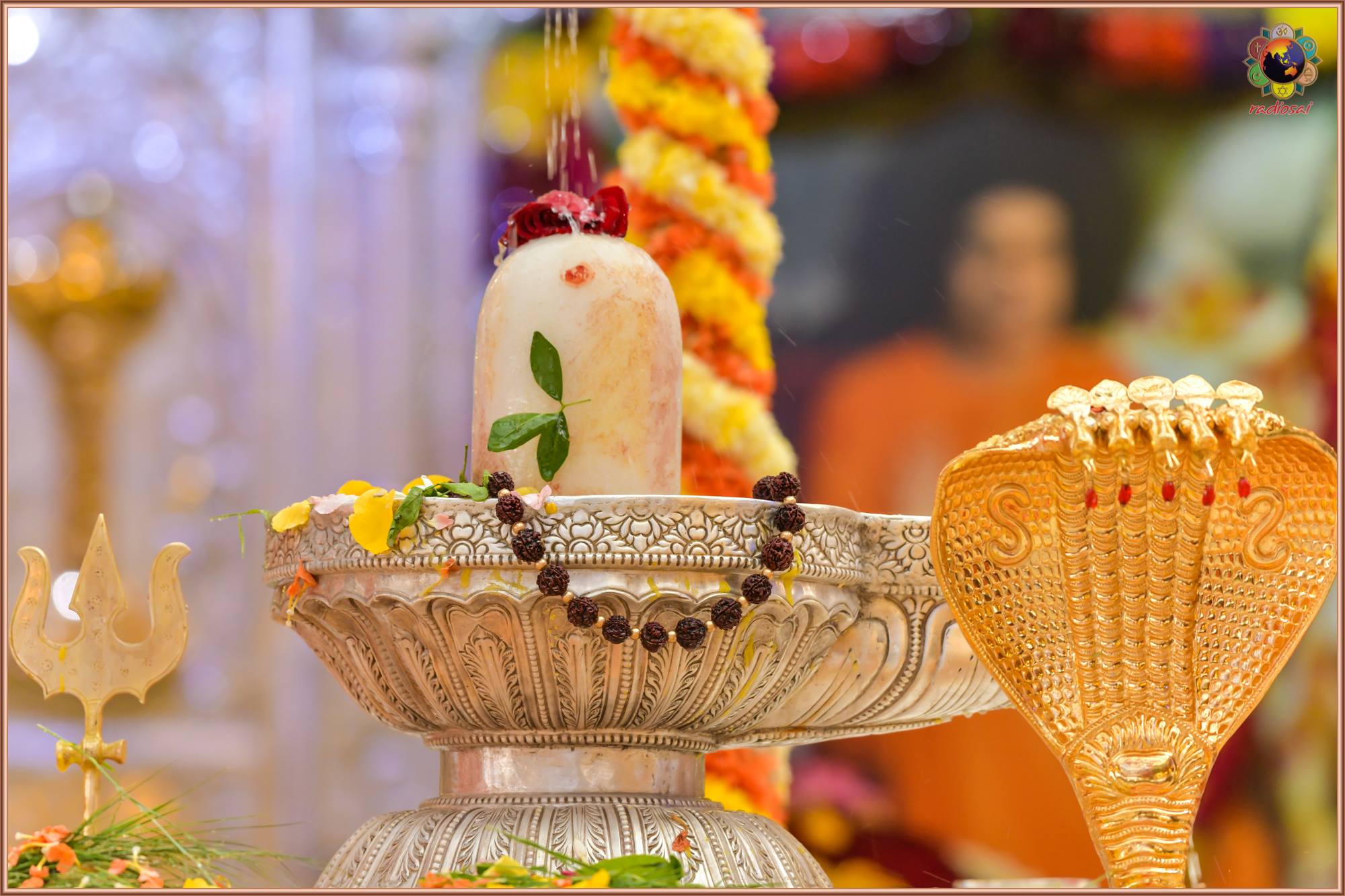








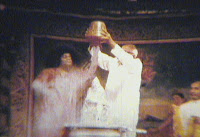



.jpg)










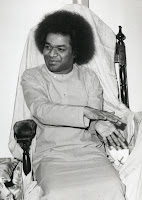.jpg)
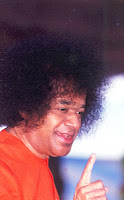.jpg)
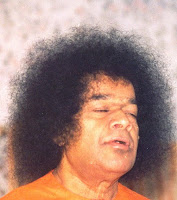.jpg)

.jpg)




